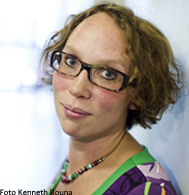Lund University
Photocatalytic nanoparticles for potent antimicrobial effects in water purification (PAW)
Academic project
Postdoc
Open
Research question
This project aims to elucidate mechanisms by which photocatalytic nanoparticles exhibit oxidative degradation and influence bacterial membranes/viral capsids. The project further explores such antibacterial and antiviral effects as a tool for water purification. For this purpose, TiO2, carbon nitrides (g-C3N4), and other carbon-based photocatalysts will be investigated with respect to their colloidal behavior, as well as their effects on bacterial membranes and virus lipid-protein capsids. Structural and compositional effects on bacteria membranes and virus envelopes will be investigated for photocatalytic nanoparticles in the absence and presence of illumination. The physicochemical results will be correlated to antimicrobial and cell toxicity effects. In addition, cationic surface coatings will be employed to boost antimicrobial activity, as well as selectivity for bacterial membranes and virus capsids. Through this, we aim to contribute to a novel mechanistic understanding of how photocatalytic nanoparticles can be designed to potently destabilize bacterial membranes and virus capsids without adverse effects on eukaryotic cell membranes.
Sustainability aspects
Ensuring access to clean water is pivotal for human sustainability, with over a billion people lacking safe drinking water, leading to the spread of diseases and resulting in numerous fatalities. Traditional water disinfection methods, such as chlorine, ozone, and chloramines, all have drawbacks, including the generation of toxic by-products and the development of microbial resistance. In this context, nanoparticles-based photocatalysis provides an appealing alternative for water purification. This technique offers notable advantages, including an extended operational lifespan of the catalysts and reduced demand for precursor chemicals, making it particularly suitable for resource-deprived regions.
This initiative aligns with UN sustainability goals, contributing to enhancing the potential for an environmentally friendly water treatment approach in rural and impoverished areas.

Lund University
Emma Sparr
Professor
emma.sparr@fkem1.lu.se
Explore projects under the WISE program
WISE drives the development of future materials science at the international forefront. The research should lead to the development of sustainable and efficient materials to solve some of today's major challenges, primary sustainability. On this page you can read more about our research projects.
Explore projects